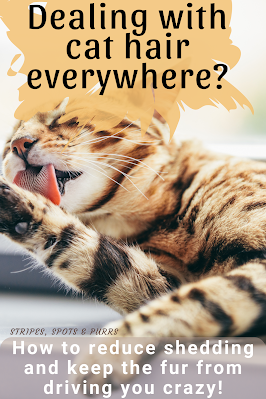Thatcher spent 4 days at the vets right before Christmas. He ate FLUFF! The dog had got ahold of a stuffed catnip filled toy and ripped it open. He pulled all the stuffing out and along comes Thatcher who smells the catnip mixed into the stuffing and he ate it!
We first realized the problem when Thatcher vomited stuffing all over the floor. It must have been right after he ate it because it was still white...not even discolored by stomach fluids yet! We didn't even consider that he didn't vomit it all up. *sigh*
Within 24 hours he started vomiting his food back up. By the next day he was a starting to act lethargic and we called for an appointment later that day. When we got to the vet they X-rayed him and noticed his intestines were sort of balled up in one area.
The veterinarian explained that the intestine normally moves the food through but since something was stuck there, the intestine was gathering up a bit giving it that odd appearance. They were going to have to remove the fluff.
LONG story short, Thatcher no longer has fluff in him and he came home after 3 nights. So today I wanted to talk about feline surgery after care.
Related reading: Most common cat illnesses.




